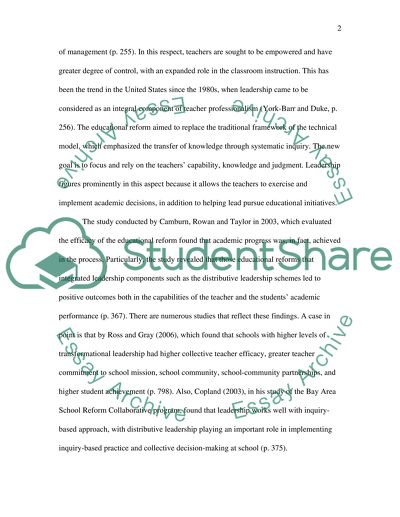Cite this document
(“Leadership in Teaching Research Paper Example | Topics and Well Written Essays - 1250 words”, n.d.)
Leadership in Teaching Research Paper Example | Topics and Well Written Essays - 1250 words. Retrieved from https://studentshare.org/education/1447637-teacher-leadership
Leadership in Teaching Research Paper Example | Topics and Well Written Essays - 1250 words. Retrieved from https://studentshare.org/education/1447637-teacher-leadership
(Leadership in Teaching Research Paper Example | Topics and Well Written Essays - 1250 Words)
Leadership in Teaching Research Paper Example | Topics and Well Written Essays - 1250 Words. https://studentshare.org/education/1447637-teacher-leadership.
Leadership in Teaching Research Paper Example | Topics and Well Written Essays - 1250 Words. https://studentshare.org/education/1447637-teacher-leadership.
“Leadership in Teaching Research Paper Example | Topics and Well Written Essays - 1250 Words”, n.d. https://studentshare.org/education/1447637-teacher-leadership.


